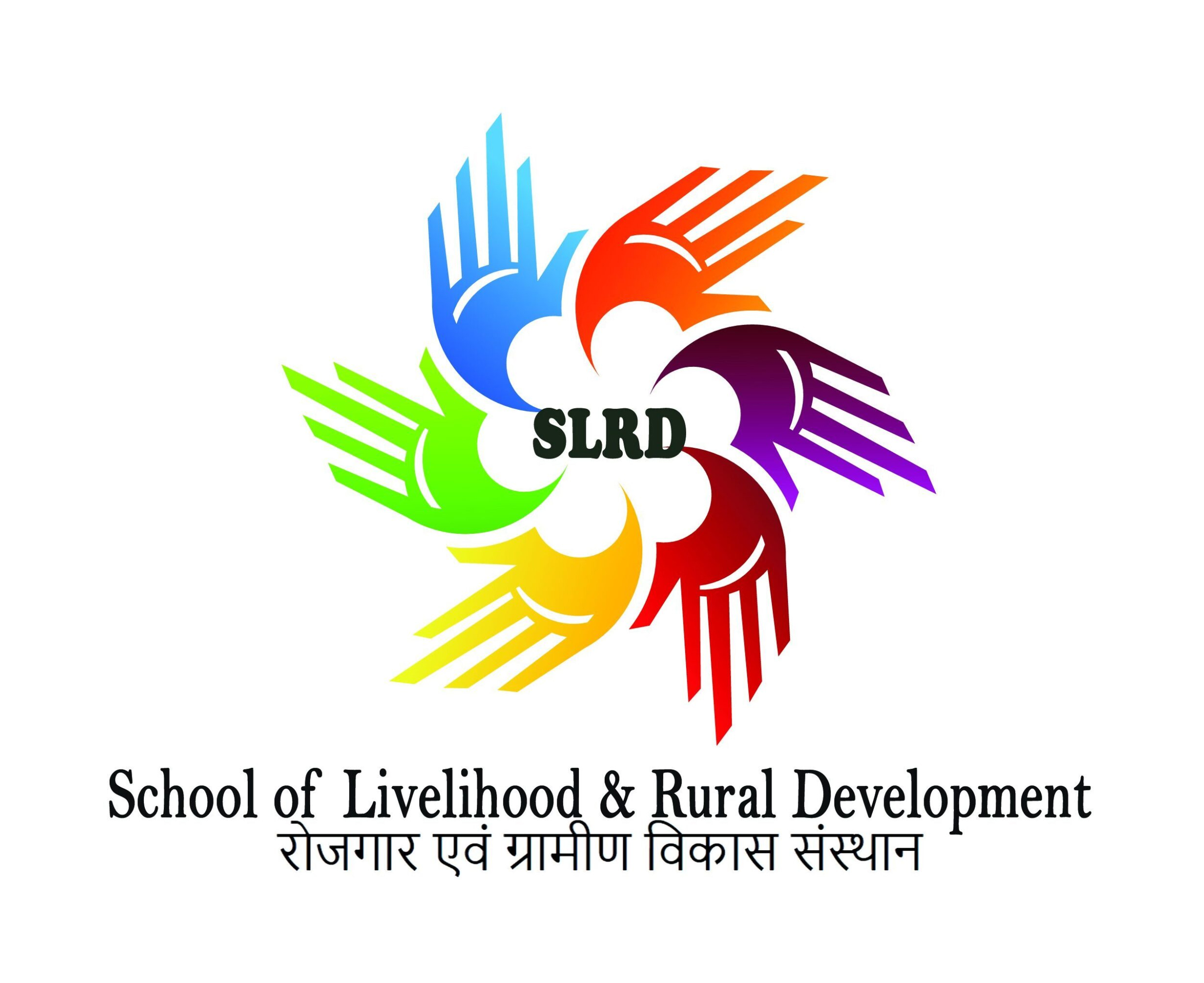March 10 to 13, 2025
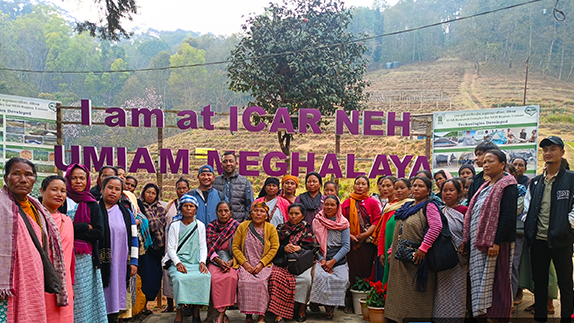
The School of Livelihood and Rural Development (SLRD), in collaboration with the ICAR – Agribusiness Incubation Center (ABI), Meghalaya, successfully organized a four-day intensive workshop titled “Climate-Smart Farming: The Role of Crop Diversification” from March 10 to 13, 2025. Hosted at the ICAR-ABI Center in Meghalaya, this program empowered farmers, agricultural professionals, and local community representatives with knowledge and practical skills to strengthen climate-resilient farming practices. The workshop was designed to promote sustainable agriculture, focusing on natural farming, crop diversification, water management, horticulture, and livestock integration—each critical for enhancing productivity and sustainability in the region.
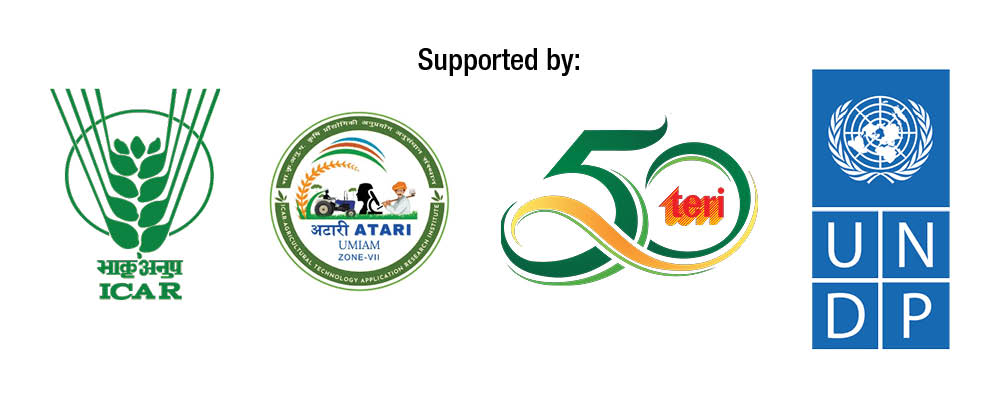
Day-Wise Programme Highlights
Day 1 – Monday, 10th March 2025
The event commenced with registration and welcome remarks by Ms. Syndong Sumer, Mr. Khanindra Baishya, and Mr. Nilabh Talukdar setting the tone for an engaging training program.
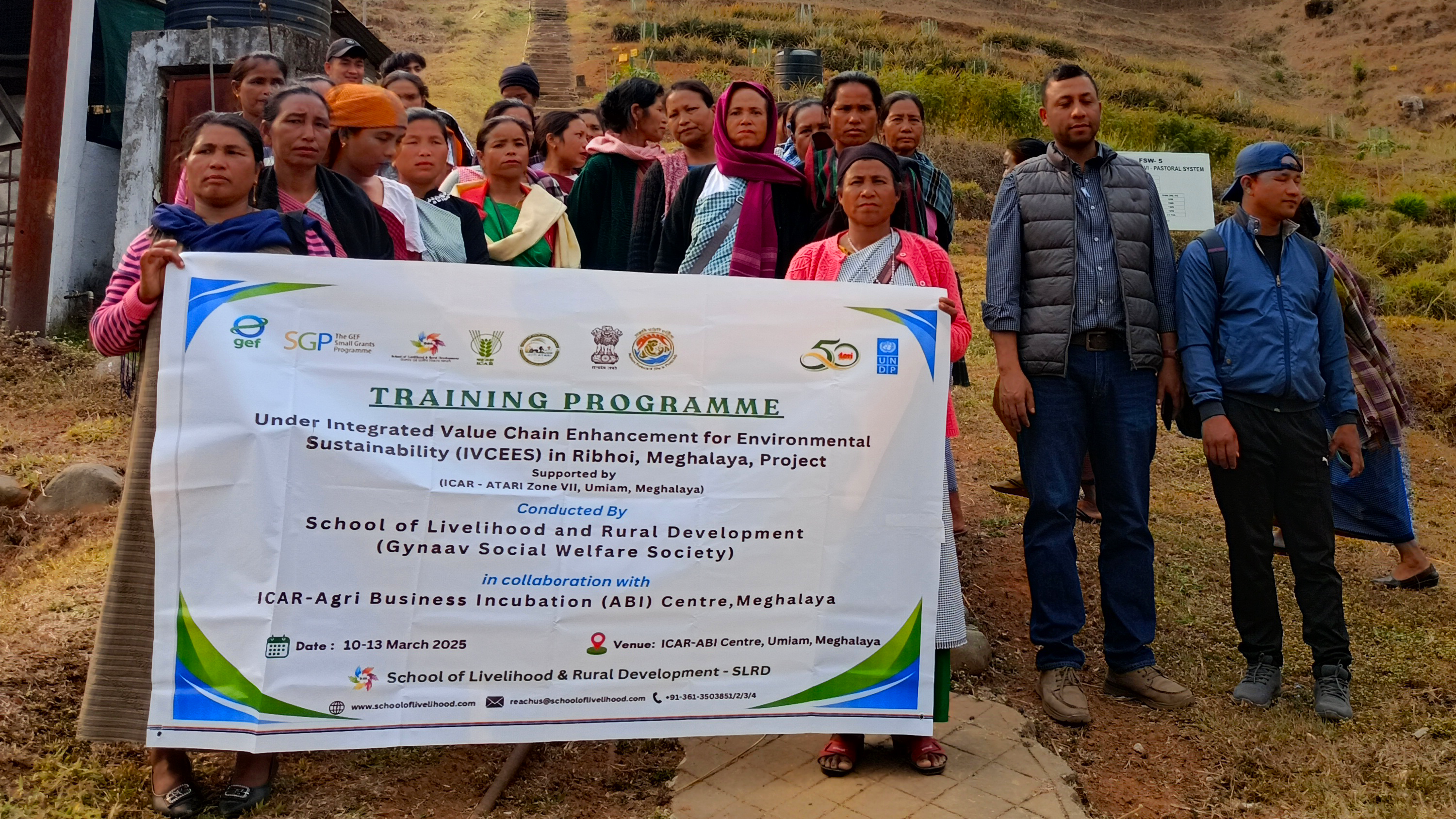
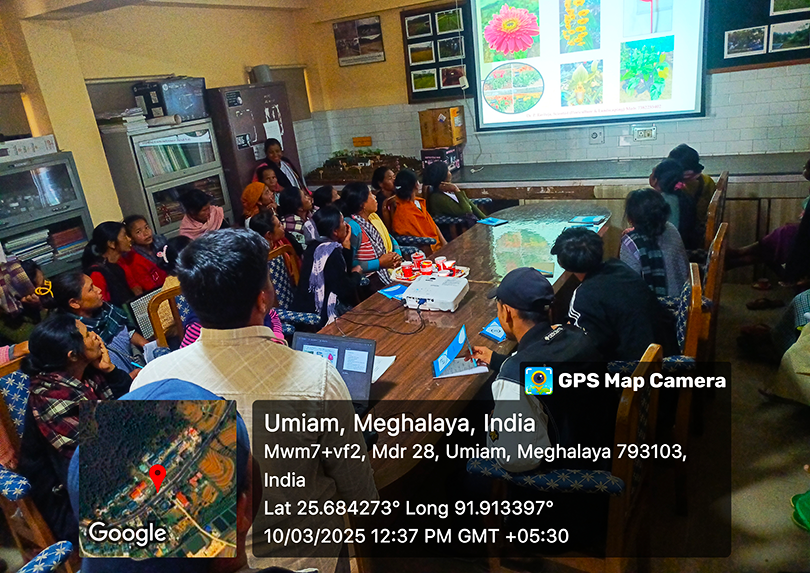

- Session 1: “Natural Farming: Its Principles and Prospects”
Dr. Badapmain Makdoh led the opening session, offering deep insights into natural farming systems, their relevance in today’s climate context, and practical ways to adopt them. - Session 2: “Scope and Prospect of Flower Crops for Empowerment and Livelihood in Meghalaya”
Dr. P. Ravi Teja shared expertise on floriculture, emphasizing its potential as a livelihood-enhancing enterprise in Meghalaya’s unique agro-climatic zones.
After lunch, participants visited local farming systems and the NPOF, guided by Dr. Badapmain Makdoh. The field visit provided firsthand experience of natural farming practices and diversification models in action.
Day 2 – Tuesday, 11th March 2025
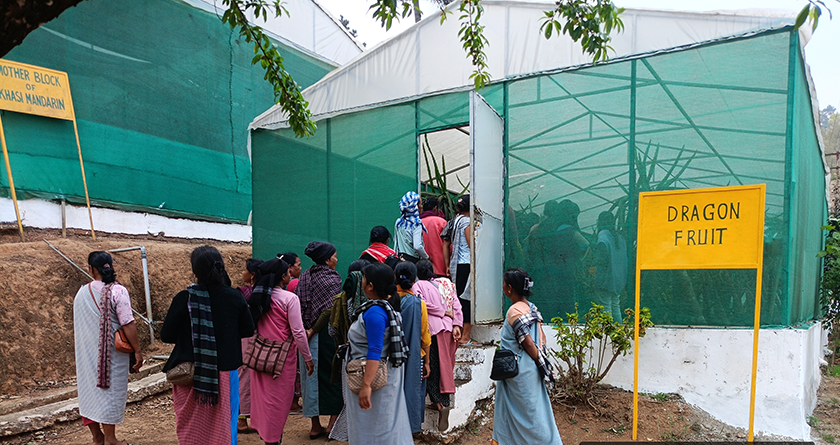
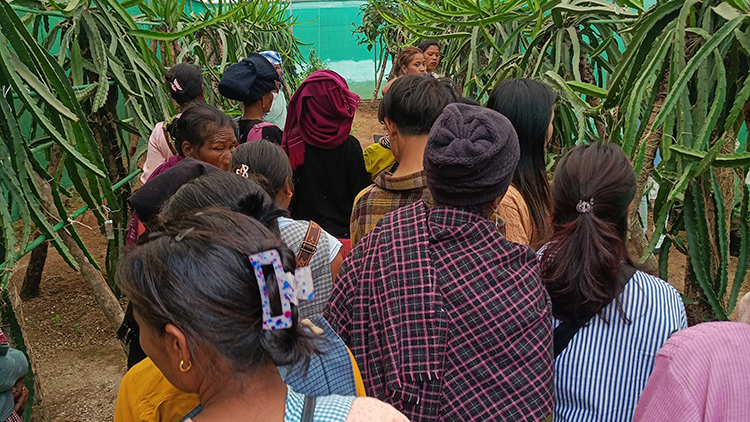
- Session 1: “Crop Diversification in Vegetable Farming for Sustainable Production in the NE Region”
Dr. M. Bilasini Devi covered strategies for diversifying vegetable crops, focusing on region-specific adaptations for sustainable productivity. - Session 2: “Crop Diversification for Achieving Higher Agricultural Sustainability in Hilly Regions”
Dr. Praveen G. addressed challenges and solutions for applying crop diversification techniques in Meghalaya’s hilly terrain.
The afternoon session involved a field visit to a horticulture farm, focusing on practical water management practices. This was jointly facilitated by Dr. M. Bilasini Devi and Mr. Koushik Bag.
Day 3 – Wednesday, 12th March 2025
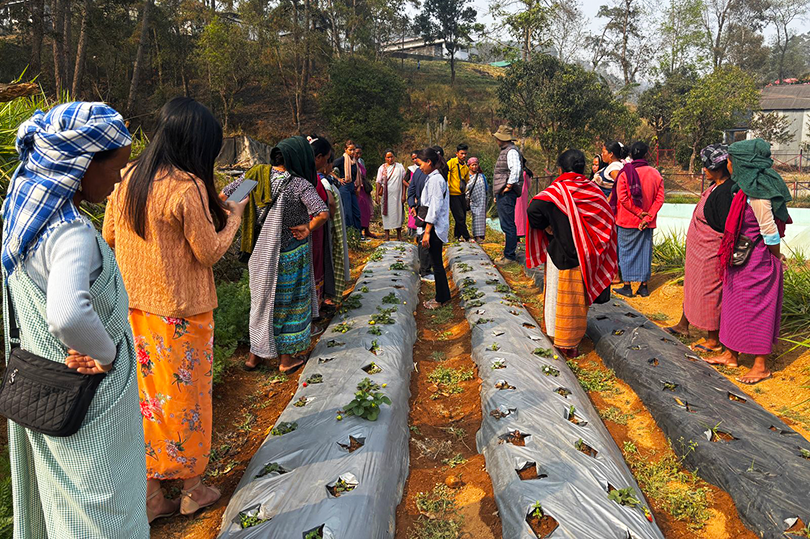
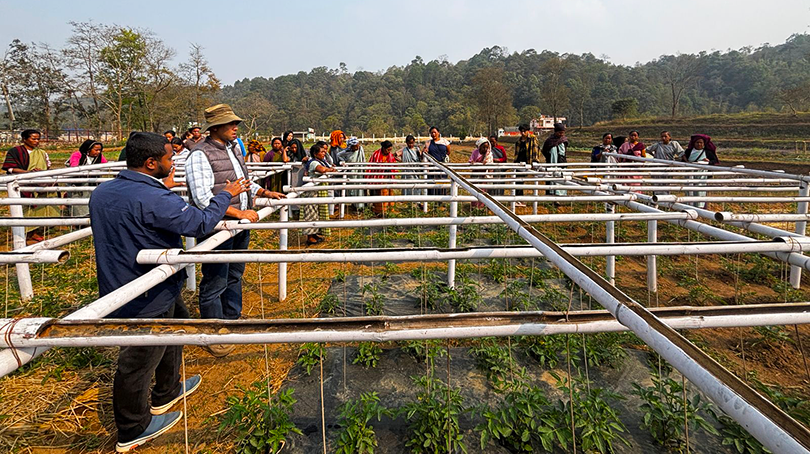
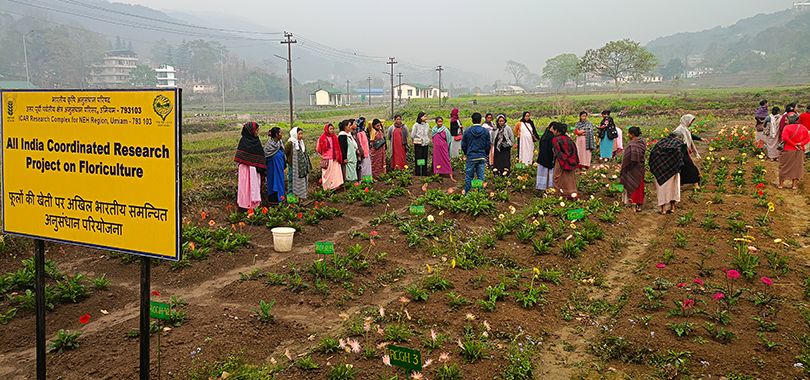
- Session 1: “Sustainable Water Management and Its Role in Crop Diversification”
Mr. Koushik Bag shared innovative water management techniques essential for supporting diversified cropping systems. - Session 2: “Crop Diversification with High Value Medicinal & Aromatic Plants”
Mr. Praveen G. discussed the growing demand and benefits of incorporating medicinal and aromatic plants into traditional farming systems.

The afternoon featured a field visit to a floriculture and agroforestry setup, led by Dr. P. Ravi Teja and Mr. Praveen G., giving participants a real-world view of integrated farming systems.
Day 4 – Thursday, 13th March 2025
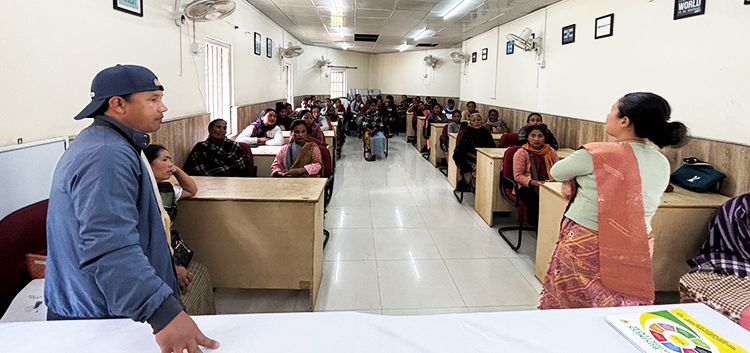
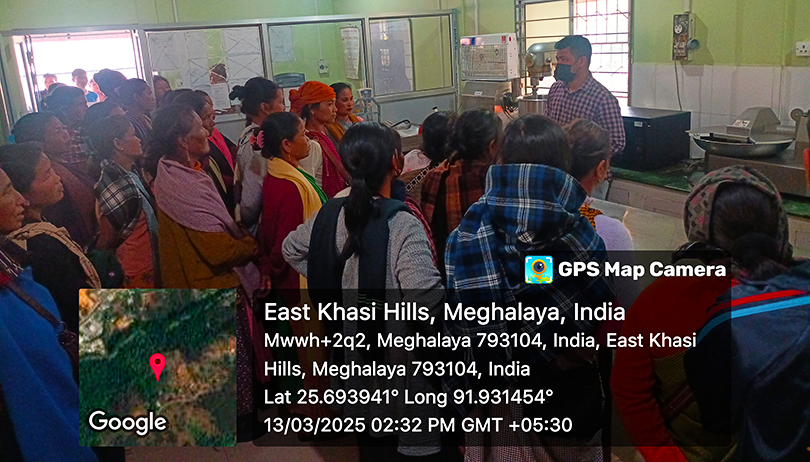
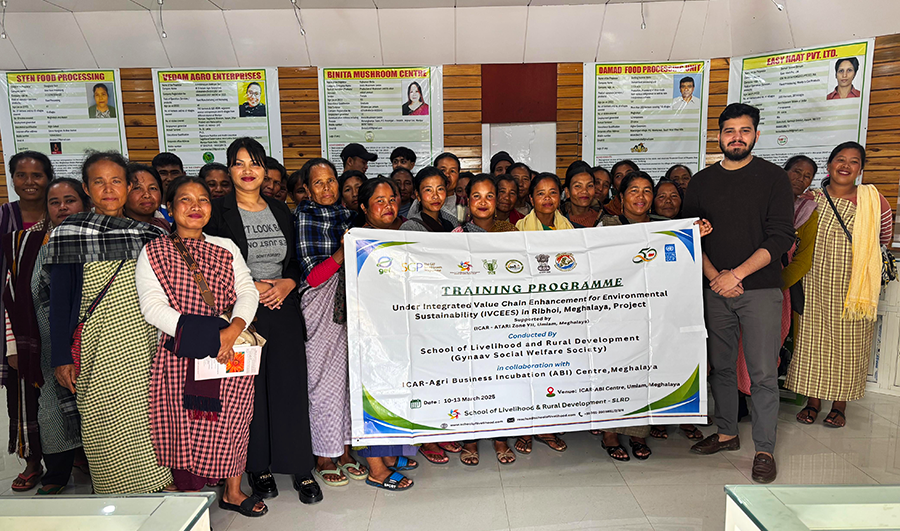
The final day highlighted market linkages and value addition:
- Session 1: “Market Opportunities and Value Addition”
A visit to the ICAR-ABI Centre at Umiam was organized, where Dr. Aniruddha Roy and Mrs. Thameri Marak elaborated on strategies to add value to agricultural produce and access new markets. - Session 2: Visit to the ICAR-Agri Incubation Exhibition Hall gave participants insights into innovations supporting agri-entrepreneurship.
Post-lunch, participants visited an animal farm and meat processing unit, where they learned about modern practices that enhance livestock productivity and integrate seamlessly with diversified farming models.
The workshop concluded with a valedictory function (3:00 – 4:00 PM) that included certificate distribution and a review of key learnings. The session also provided a platform for participants to network and discuss potential future collaborations.
Key Achievements and Impact
- Enhanced Technical Skills: Participants gained in-depth knowledge of natural farming, crop diversification, and water management, along with hands-on exposure to real-world applications.
- Practical Field Visits: The well-planned field visits reinforced theoretical sessions and showcased success stories in diversified farming and agri-business models.
- Women’s Participation: A major highlight was the active involvement of women farmers. Out of 40 farmer participants, 33 were women, reflecting SLRD’s strong commitment to gender inclusivity and empowering women in agriculture.
Conclusion and Way Forward
The four-day workshop successfully fulfilled its objectives, laying a solid foundation for promoting climate-smart, diversified, and sustainable farming practices in Meghalaya. The combination of expert-led classroom sessions and field-based learning not only enhanced the knowledge base of the participants but also inspired them to adopt innovative and sustainable agricultural practices.
With initiatives like this, SLRD continues to champion rural development, farmer empowerment, and climate resilience in the agricultural sector. The learnings from this workshop are expected to drive future innovations and collaborations that will strengthen farming communities and ensure environmental sustainability in the region.
Watch the Highlights!
A video capturing the key moments and insights from the workshop has been created to showcase the impact and learning experiences of the participants. Stay tuned for the release!
#MissionVistaar #SLRD #SustainableFarming #ClimateAction
